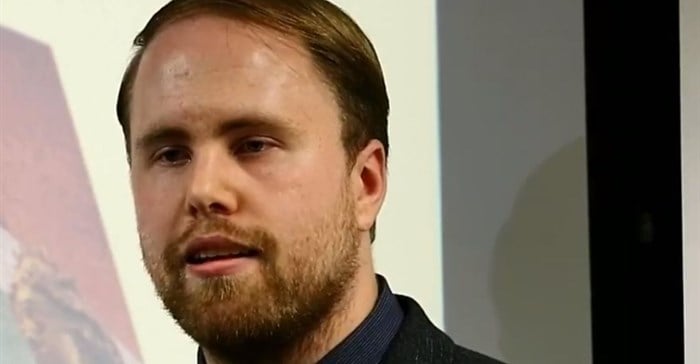For the first time in seven months, Eskom has announced the return of stage-2 load shedding across South Africa. Officially blame is being placed on broken conveyor belts and limited capacity, but anyone who has been paying attention knows the real problem lies in legislation, particularly Eskom's legally-protected monopoly over the provision of electricity. South Africa can easily extricate itself from this situation by amending the Electricity Regulation Act. We must do so before the economy collapses.

Martin van Staden
Section 7(1) of the Electricity Regulation Act (ERA) of 2006 prohibits the generation, transmission, import, export, trade, or distribution of electricity without a licence issued by the National Electricity Regulator (NERSA). Section 34(1) of the ERA bestows on the minister of energy the unconstrained discretion to decide whether and when new generation capacity is necessary, the types of sources of such electricity – coal, nuclear, green, etc. – and whether the private sector may be licenced to participate in this generation and distribution.
The absurdity of this level of regulation for a country in South Africa’s position must be immediately evident. Despite the fact that several of them were ready to step in when the 1998 Energy White Paper was publicised, no licences have been issued to coal power companies. Government’s commitment against privatisation and decentralisation is exclusively ideological and not practical, and South Africa is once again suffering the consequences.
The centralisation of all South Africa’s power on one grid under the stewardship of one company was a mistake. Prior to this misstep in 1922 when Eskom was established, electricity provision was decentralised and concentrated around private companies and municipalities. Cronyists in South Africa’s mining industry insisted that government expropriate private electricity companies and bring them under Eskom to provide the mines with cheap, subsidised power.
Eskom’s monopoly has proven disastrous. If it goes down, so does the economy. The ailing power utility warned on the morning of 16 October 2019 that, if it does not start rotational load shedding, a national collapse in the grid could take place. This possibility must, and likely does, scare South Africans down to the bone. What stands between us all and total darkness is one thin layer of incompetence; a state-owned enterprise that has proven time and time again that it cannot do the one job with which it was entrusted.
In an open electricity market, on the other hand, the collapse of one power company, or one grid, would be an inconvenience at best and a localised disaster at worst, as the limited 14-day 2003 blackout in North America showed. The path to this alternative lies in the amendment of the ERA to allow anyone to generate, transmit, distribute and trade in electricity. With this safety-net securely in place, the national power grid must be split up and privatised in a piecemeal fashion, followed by the privatisation of individual power plants.
Vouchers for the poor
“But what about the poor?!” is the usual, emotionally-charged retort when the matter of liberalising the electricity sector in South Africa is brought up. It is regrettable that the poor are always conscripted into the narratives of those elites who advocate the inefficient and ruinous use of scarce resources. For example, it was recently reported in the press that Eskom has been overspending R4.5m per day on coal. But there has always been an answer to this question.
Government has the resources to provide poor South African households with electricity vouchers. It will, no doubt, mean government must cut spending elsewhere to make this possible. The unsustainable public sector wage bill and the billions pumped into South African Airways and the South African Broadcasting Corporation are but a few among a nigh-unlimited list of sources for voucher money. But that R4.5m per day is already itself almost R70 per month for 20-million poor South Africans, many of whom live in the same households.
These vouchers would be a fixed amount of money given to households on a means-tested basis that may only be used for the purchase of electricity. The money government gets from cutting unnecessary spending elsewhere would be added on top of the R70 per person per month that is already available.
This solution would put an end to government’s ill-fated foray into what is supposed to be the private enterprise of the electricity sector, without leaving the poor deprived. Above all, it would rescue the economy from what appears to be a guaranteed demise if Eskom is permitted keep its State-enforced monopoly. South Africans must realise that continuing to trust government with this crucial factor in our economy is deeply foolish, and completely ignores practical solutions.




























